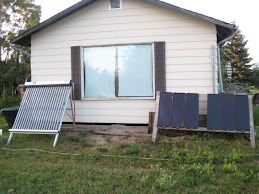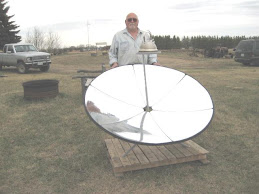The 11 Ways That Consumers Are Hopeless at Math
(1) You walk into a Starbucks and see two deals for a cup of coffee. The first deal offers 33% extra coffee. The second takes 33% off the regular price. What's the better deal?
"They're about equal!" you'd say, if you're like the students who participated in a new study published in the Journal of Marketing. And you'd be wrong. The deals appear to be equivalent, but in fact, a 33% discount is the same as a 50 percent increase in quantity. Math time: Let's say the standard coffee is $1 for 3 quarts ($0.33 per quart). The first deal gets you 4 quarts for $1 ($0.25 per quart) and the second gets you 3 quarts for 66 cents ($.22 per quart).
The upshot: Getting something extra "for free" feels better than getting the same for less. The applications of this simple fact are huge. Selling cereal? Don't talk up the discount. Talk how much bigger the box is! Selling a car? Skip the MPG conversion. Talk about all the extra miles.
There are two broad reasons why these kind of tricks work. First: Consumers don't know what the heck anything should cost, so we rely on parts of our brains that aren't strictly quantitative. Second: Although humans spend in numbered dollars, we make decisions based on clues and half-thinking that amount to innumeracy.
Here are 10 more ways consumers are bad at math, with an assist from historian and author William Poundstone.
(2) We're heavily influenced by the first number. You walk into a high-end store, let's say it's Hermès, and you see a $7,000 bag. "Haha, that's so stupid!" you tell your friend. "Seven grand for a bag!" Then you spot an awesome watch for $367. Compared to a Timex, that's wildly over-expensive. But compared to the $7,000 price tag you just put to memory, it's a steal. In this way, stores can massage or "anchor" your expectations for spending.
(3) We're terrified of extremes. We don't like feeling cheap, and we don't like feeling duped. Since we're not sure what things are worth, we shy away from prices that appear too high or too low. Stores can employ our bias for moderation against us. Here's a great story:
People were offered 2 kinds of beer: premium beer for $2.50 and bargain beer for $1.80. Around 80% chose the more expensive beer. Now a third beer was introduced, a super bargain beer for $1.60 in addition to the previous two. Now 80% bought the $1.80 beer and the rest $2.50 beer. Nobody bought the cheapest option.In short: We are all Goldilocks.
Third time around, they removed the $1.60 beer and replaced with a super premium $3.40 beer. Most people chose the $2.50 beer, a small number $1.80 beer and around 10% opted for the most expensive $3.40 beer.
(4) We're in love with stories. In his book Priceless, William Poundstone explains what happened when Williams-Sonoma added a $429 breadmaker next to their $279 model: Sales of the cheaper model doubled even though practically nobody bought the $429 machine. Lesson: If you can't sell a product, try putting something nearly identical, but twice as expensive, next to it. It'll make the first product look like a gotta-have-it bargain. One explanation for why this tactic works is that people like stories or justifications. Since it's terribly hard to know the true value of things, we need narratives to explain our decisions to ourselves. Price differences give us a story and a motive: The $279 breadmaker was, like, 40 percent cheaper than the other model -- we got a great deal! Good story.
(5) We do what we're told. Behavioral economists love experimenting in schools, where they've found that shining a light on fruit and placing a salad bar in the way of the candy makes kids eat more fruit and salad. But adults are equally susceptible to these simple games. Savvy restaurants, for example, design their menus to draw our eyes to the most profitable items by things as simple as pictures and boxes. Good rule of thumb: If you see a course on the menu that's highlighted, boxed, illustrated, or paired with a really expensive item, it's probably a high-margin product that the restaurant hopes you'll see and consider.
(6) We let our emotions get the best of us. In a brilliant experiment from Poundstone's book, volunteers are offered a certain number of dollars out of $10. Offers seen as "unfair" ($1, let's say) activated the insula cortex, "which is otherwise triggered by pain and foul odors." When we feel like we're being ripped off, we literally feel disgusted -- even when it's a good deal. Poundstone equates this to the minibar experience. It's late, you're hungry, there's a Snickers right there, but you're so turned off by the price, that you starve yourself to avoid the feeling of being ripped off. The flip-side is that bargains literally make us feel good about ourselves. Even the most useless junk in the world is appealing if the price feels like a steal.
(7) We're easily made dumber by alcohol, time, decisions. When you're young and drunk at a bar, you're more likely to do stupid things with strangers. "Am I fully assessing this complex romantic situation?" is a difficult question to answer on seven glasses of wine, so we're more likely to ask ourselves a simpler question: "Is s/he hot?" When we're drunk, stressed, tired, and otherwise inattentive, we're more likely to ask and answer simple questions about buying things. Cheap candy bars and gum are situated near the check-out at grocery stores because that's where exhausted shoppers are most likely to indulge cravings without paying attention to price. Boozy lunches are good for deal-making because alcohol narrows the range of complicating factors we can hold in our heads at once. If you want somebody to take an under-examined risk, get him boozed, tired, or ego-depleted.
(8) We're pained by transaction costs... In a personal finance column here, Megan McArdle implored her readers to give up recurring payments like gym memberships and subscriptions to papers and services they don't use. "Don't buy stuff you don't consume" seems like obvious enough advice, but Megan had a great point. We're drawn to subscriptions and memberships and bundles partially because we seek to avoid transaction costs. We'd rather overpay a little than suffer the psychological pain of pulling out a wallet and watching our money go to each gym season/movie/etc.
(9) ... but we're weird about rebates and warranties. Now that I've just told you that consumers try to avoid additional payments, I should add that there are two additional payments we love: rebates and warranties. The first buys the illusion of wealth ("I'm being paid money to spend money!"). The second buys peace of mind ("Now I can own this thing forever without worrying about it!"). Both are basically tricks. "Instead of buying something and getting a rebate," Poundstone writes, "why not just pay a lower price in the first place?'
"[Warranties] make no rational sense," Harvard economist David Cutler told the Washington Post. "The implied probability that [a product] will break has to be substantially greater than the risk that you can't afford to fix it or replace it. If you're buying a $400 item, for the overwhelming number of consumers that level of spending is not a risk you need to insure under any circumstances."
(10) We're obsessed with the number 9. Up to 65 percent of all retail prices end in the number 9. Why? Everybody knows that $20 and $19.99 are the same thing. But the number 9 tells us something simple: This thing is discounted. This thing is cheap. This thing was priced by somebody who knows you like things discounted and cheap. In other words, 9 has transcended the status of charm



















